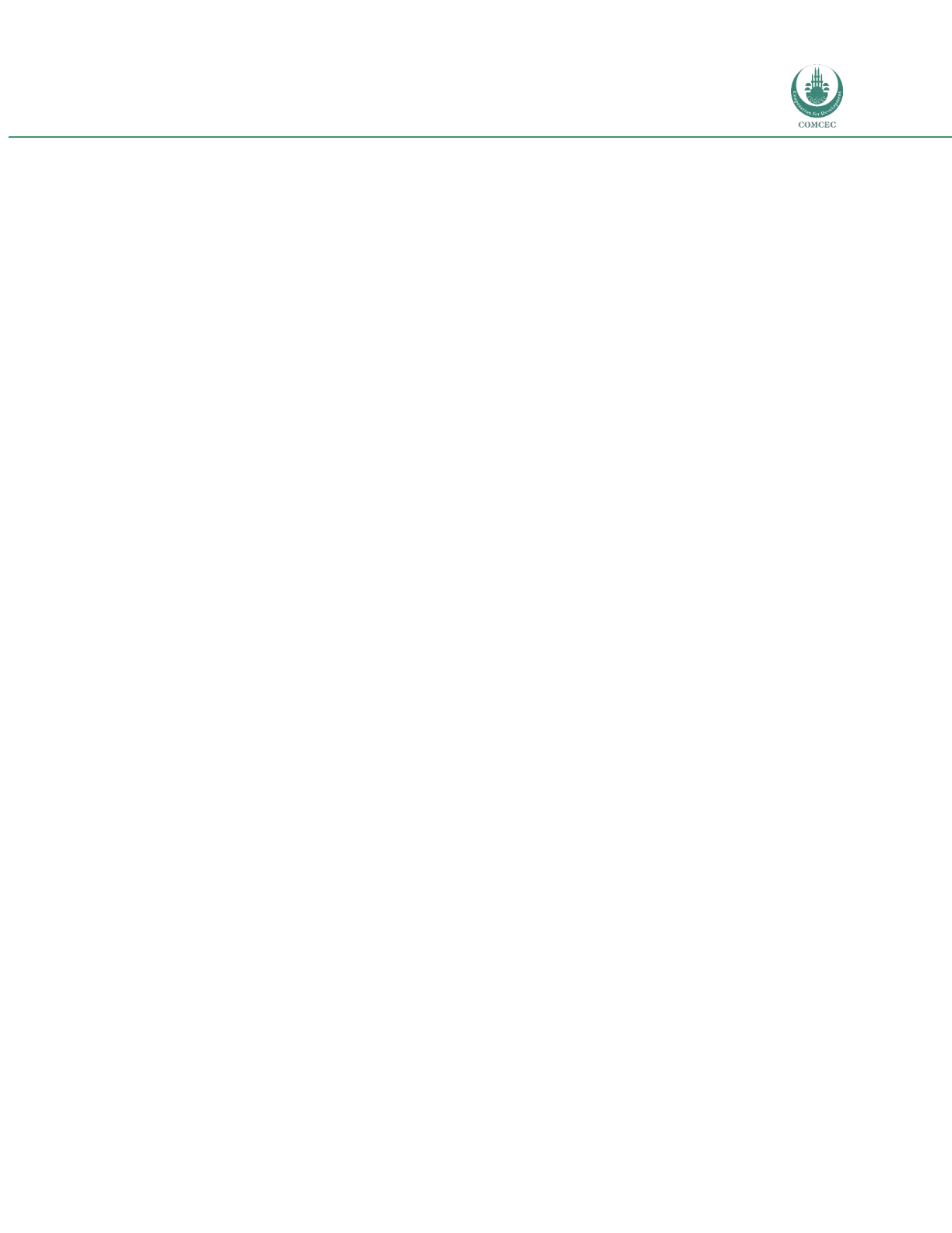

Strengthening the Compliance of the OIC Member States
to International Standards
85
6.2.2.1
Standards Infrastructure
By contrast with many other countries, standards and quality infrastructure in Egypt is run exclusively
by the public sector, and does not include any private law bodies. The main elements of the quality
infrastructure in Egypt are the Egyptian Organization for Standards and Quality (EOS), the National
Metrology Institute (National Institute for Standards-NIS), the Egyptian Accreditation Council (EGAC),
and the General Organization for Exports and Imports Control (GOEIC).
EOS is the sole public entity responsible for standardization and quality control in Egypt. The
organization was established under the name “Egyptian Organization for Standardization” according to
presidential decree 29/1957 and became an ISO member in the same year. In 1979, the Quality Control
Center was joined to EOS according to presidential decree number 392. Finally, the name was changed
to become the Egyptian Organization for Standards and Quality under presidential decree 83/2005. The
organization is currently affiliated to the Ministry of Trade and Industry and is funded by the latter,
along with some non-governmental income mainly from sales of standards, and issuing conformity
certificates and quality marks (USAID, 2006).
EOS develops local standards for products, testing and inspection methods, and equipment. It also issues
conformity certificates and quality marks. It acts as an enquiry point for notifications under the WTO
TBT Agreement and represents Egypt in different international standardization, quality, and
measurement bodies. EOS also provides technical support and personnel training to a number of local
and regional quality entities.
Since 1979, EOS has become the umbrella for two main departments that represent its main functions:
the Central Department for Standardization, and the Central Department for Quality Control.
The Central Department for Standardization has so far issued around 10,000 national standards. It also
works on the harmonization of local standards with international standards to reduce technical barriers
to trade and to fulfill the requirements of its regional trade agreements, such as COMESA, PAFTA, and to
access the European Market within the framework of the EU-Egypt Association Agreement. Standards
are developed in 170 technical committees that include around 1,700 representatives of stakeholders
from other ministries and the private sector. EOS has standards guides for textiles, chemicals, food,
engineering products, documentation, and measurement.
As for quality assessment, the Central Department for Quality Control is responsible for granting four
types of certificates:
a)
The Egyptian Quality Mark: a voluntary mark indicating a high quality product, and based on the
international norms indicated in ISO Guide 28/1982;
















